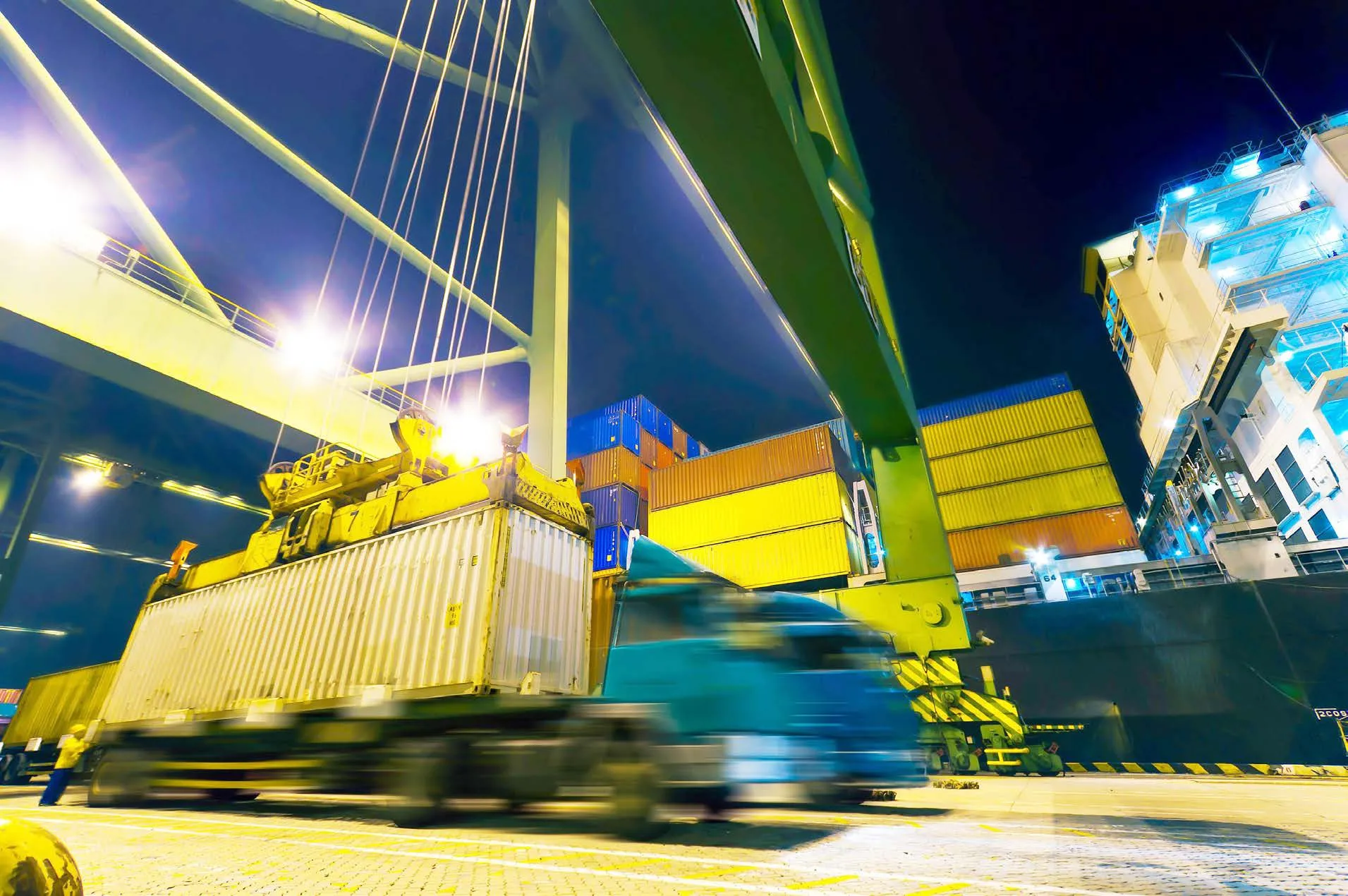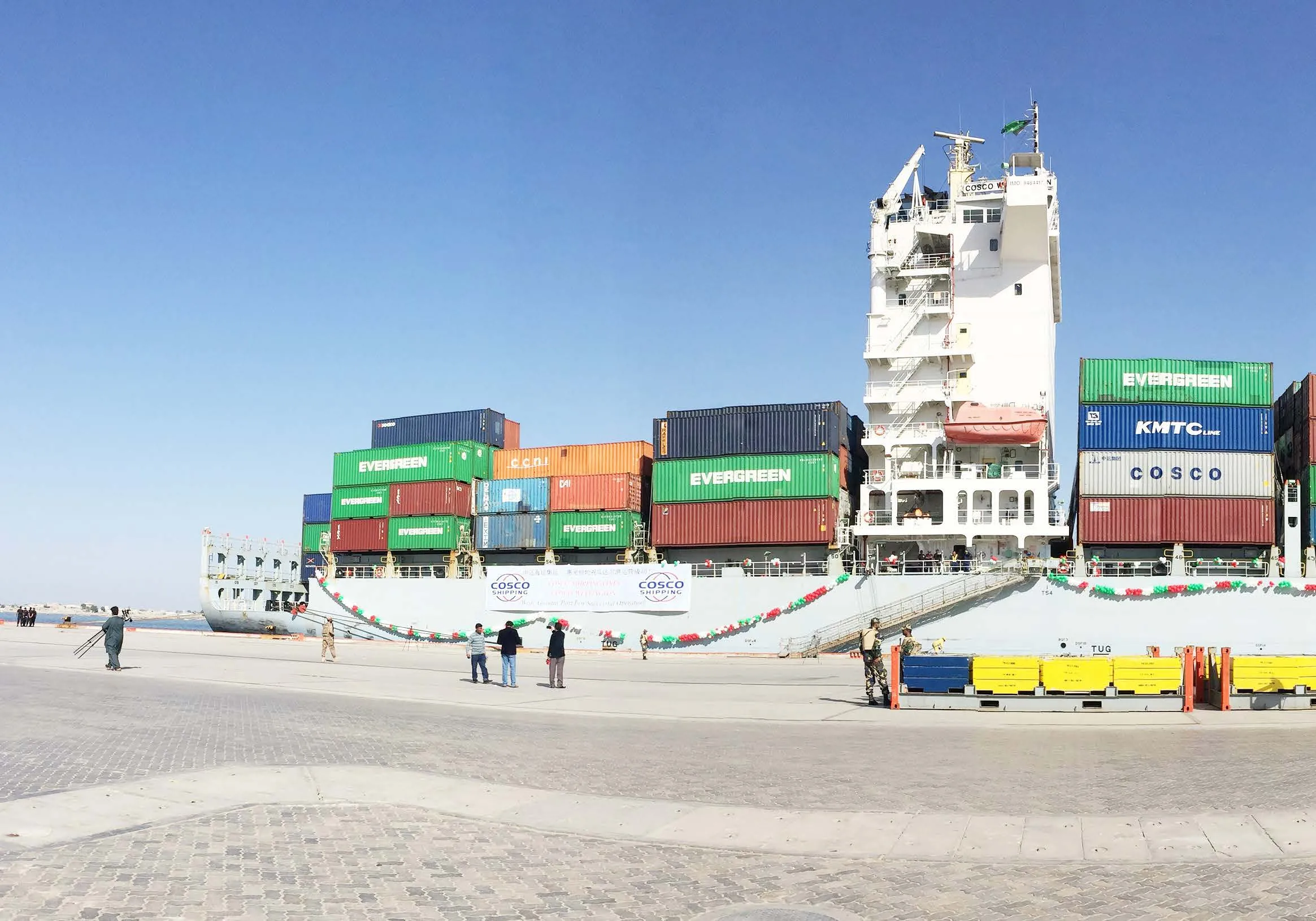Security at Overseas Ports Analyzed
2018-08-02ZhangPengfeiWuJianjun
Zhang Pengfei Wu Jianjun

Shipping industry is a core strategic industry of “maritime power country” and “coastal country”,with extraordinary significance to the national economy. As an important link in the industry, ports directly involve the national economic security and defense security. Through a general survey of global ocean powers, they have almost all set up and developed complete port laws,regulations and operating rules, providing solid protection for shipping development.With the strategic deployment of an ocean power and “Belt and Road” initiative,Chinese enterprises have invested and built more and more ports overseas,however, Chinese overseas port security status remains a tough issue. Starting with international ship and port facility security rules, through differentiation and analysis of safety and security concepts,clarifying the jurisdiction and main contents of port security is conductive to development of Chinese overseas port security strategy under the Maritime Silk Road framework.
On June 30, 2016, Greek Parliament approved China Ocean Shipping Group’s deal to acquire a majority stake in Piraeus Port Authority(PPA), Greece’s largest port. PPA business covers six sectors -- cruise terminal, ferry terminal, automobile terminal, container terminal, shipbuilding and repair yards, oil and gas terminal.China Ocean Shipping acquiring a majority stake means takeover of Greece’s largest port. This is the first time a Chinese company has ever taken over the whole port. Meanwhile,Chinese companies obtained part of management right of some overseas port areas.
Port security has increasingly important significance to China, not only port (+ longshoremen) and ship (+seamen) security requires safeguarding,but also it is integral of Chinese energy security and maritime trade channel security as well as national security.
As a Category A member of IMO and a contracting state of SOLAS, the Chinese Government has always attached great importance to port security. As a part of SOLAS, International Ship and Port Facility Security Code (ISPS CODE) is applicable to China since it came into effect in 2004. To more effectively implement the code, the Chinese Government promulgated in 2007 International Ship Security Code of PRC (Order of the Ministry of Communications No.2 of 2007), Port Facility Security Code of PRC (Order of the Ministry of Communications No.10 of 2007) among other laws and regulations with a view to be geared to international standards.

As the global largest port state,China has taken measures acting on international convention on legal and actual operating levels, but in fact China’s port security status leaves a big gap with international practices and faces tough challenges.
First of all, many Chinese ports suffer a weak port security consciousness and risk management confusion.Secondly, Chinese laws and regulations lack effective criterion for port security and even entire country security issues.IMO passed ISPS CODE in 2002, but China was not integrated with it until in 2007 via an order of the Ministry of Communications. Port Facility Security Code issued by the Ministry of Communications in 2007 features low effectiveness and narrow influence surface, unable to impose operative constraint on ministries, commissions and units outside the system. Safety laws do not mention security at all.The National Security Law which was passed in 2015 was a great progress,but once again it does not mention port security. IMO ISPS CODE is a unified law bringing international ships and ports under unified management. It is also true in practice, especially CODE core issues security level and security declaration issues. Before arrival at the port, a ship should declare security level and on board special security status.At the same time, the ship is entitled to request the port for peer report on port security level and whether there is any port security threat. This part is the core part of CODE. Nevertheless, the order of the Ministry of Communications divided it into two laws, thus bringing ship and port facility security issues into separate management. This is bound to give rise to inconvenience in actual operation and connection difficulty, hence triggering unnecessary security events.

Moreover, in the absence of effective legal norms, Chinese unified management of port security has phenomena of unclear responsibilities and conflicts of jurisdiction. Port security issues involve a number of departments, particularly unclear responsibilities and jurisdiction problems between the Ministry of Transport and the Ministry of Public Security. It is possible to have multiple jurisdictions in the face of interests,while when problems and responsibilities arise, the departments prevaricate and shuffle. As long as such a special issue as security is concerned, prompt reaction is required in an emergency circumstance for an effective measure, further calling on a special department for unified coordination and management. Unclear jurisdiction issue itself is a very large hidden security trouble.
At last, port security is very important for domestic ports and still more important for Chinese overseas ports. As mentioned earlier, Chinese enterprises have built a number of ports and port areas overseas and they are integral of Chinese strategic security.However, the overseas ports face several security challenges due to legal void and various problems in actual operation.Chinese laws lack relevant provisions for protection of overseas investment and port security and there are very few bilateral treaties on the issue. In addition, Chinese management and operation personnel stationed in overseas ports lack due understanding of port security and are not much familiar with the way to cooperate with overseas port authorities and fend off security risk. Not only so, upon occurrence of a security accident, China lacks effective experience summary to improve risk control capability.
In conclusion, port security is first of all to safeguard life and safety of longshoremen and seamen, property safety of ports and ships, energy security and maritime trade channel security and it is integral of China’s national security. With the advance and penetration of China’s Maritime Silk Road strategic framework, improving port security is of great significance to China. Firstly, Chinese laws and regulations are incomplete, especially in port security which is almost void. A top priority is China should strengthen legislation, at least integration with relevant requirements of international conventions. At the same time, Chinese relevant laws should supplement how to protect overseas investment. Chinese ports generally have weak security awareness and backward risk management means. The aim of many ports executing convention is only for smooth export of cargoes and reduction of check links overseas. China should strengthen relevant training and publicity,including routine security drills, so that security issue can get popular support. In overseas ports, Chinese enterprises should enhance communication and cooperation with local relevant authorities and improve risk consciousness and security operation.Especially in ports with high risk level, such as the Middle East and some African ports,security issue should be an important routine work, e.g., security training and drills, security information acquisition, processing and reply, security equipment investment and maintenance, contact and cooperation with local security department, etc.
杂志排行
船舶经济贸易的其它文章
- Hansman Yacht: Explores a New Way to Expand the Market
- Boost Strategic Cost Management,Assist in Ship Enterprise Management Improvement
- Chinese Unmanned Surface Vessel:From Technology Followship to Leadership
- Is Ballast Water System Market Ushering a New Competitive Stage in Forthcoming BMWC Implementation?
- 市场成交寥寥运价持续下跌 2018年6月中国沿海(散货)运输市场分析
- 市场需求增加航线表现分化2018年6月中国出口集装箱运输市场分析
